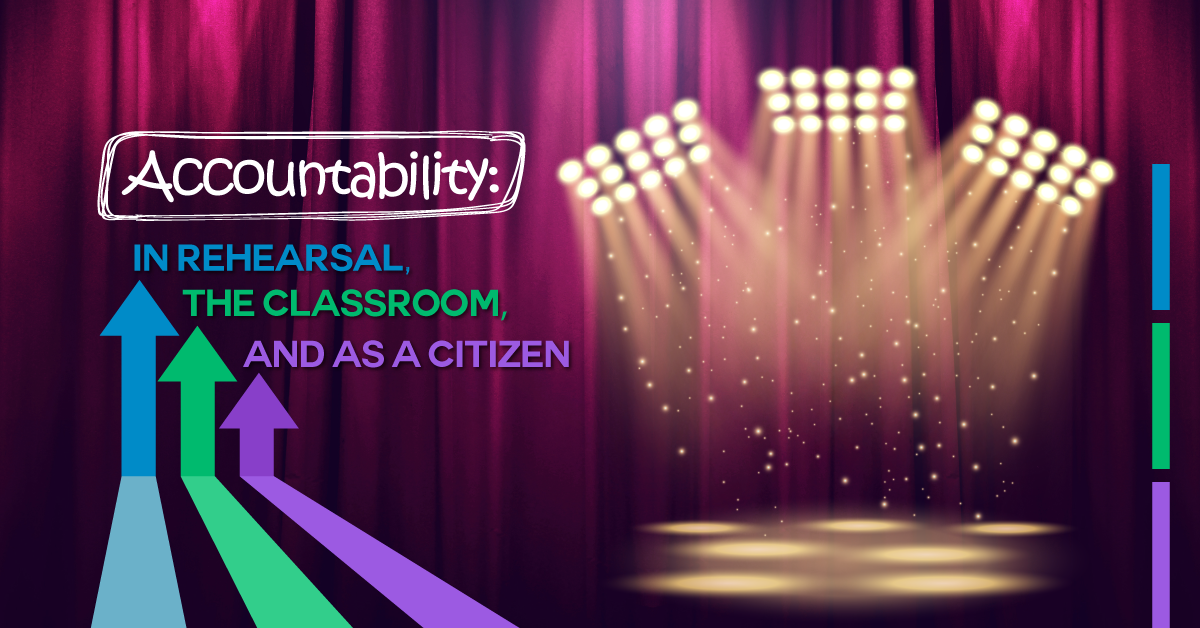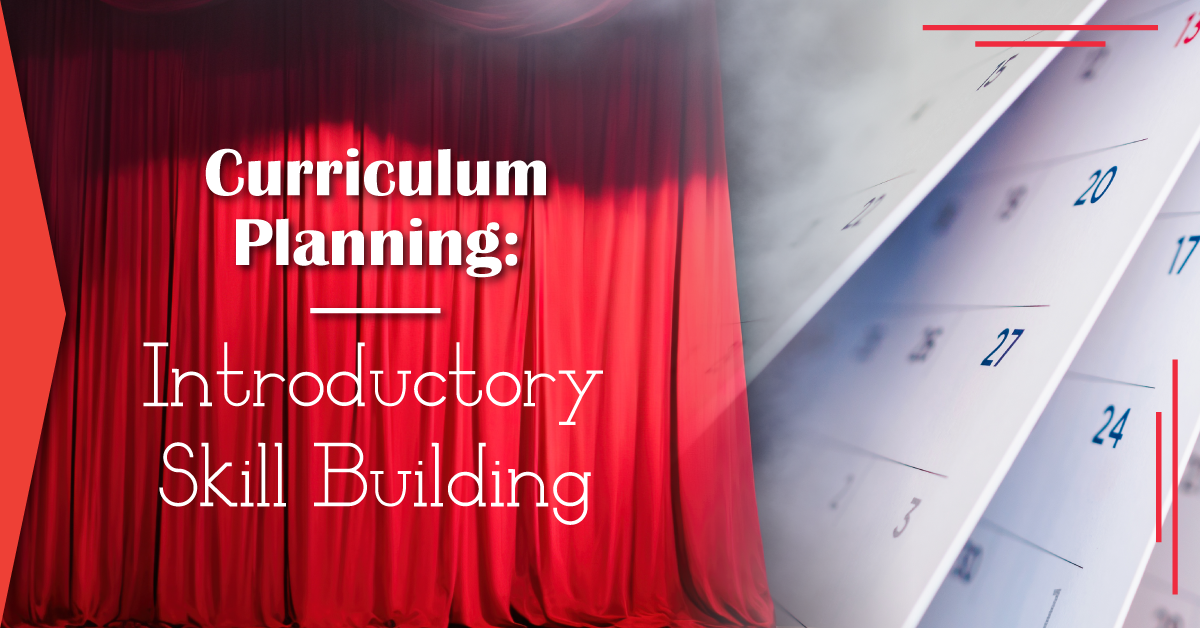Accountability: In Rehearsal, the Classroom, and as a Citizen
Accountability is an important skill for students to practice, not only as drama students and production participants, but as citizens in their schools and communities. Accountability means taking ownership of one’s actions and responsibilities. It means giving one’s best effort at all times. Practicing accountability in school sets students up for success in their future workplaces and life commitments.
Accountability can sound intimidating or stressful for students, but really, it’s the only way anything gets done. Teachers need to hold students accountable for their actions, but students must also learn to hold themselves accountable.
It’s also important for teachers to demonstrate accountability to their students. Modeling the behaviour you want your students to emulate shows that you practice what you preach. The “do as I say, not as I do” method rarely works.
The following list of tips demonstrates how both teachers and students can demonstrate accountability. Go over this list with your students, and discuss how these points can be applied to their work in the drama classroom and in rehearsals, how they can be applied to the “real world” (part-time jobs, extracurricular activities, community involvement, dealing with friends and family, etc.), and how teachers can be accountable to their students.
Be there, be on time, and be ready to work.
- Avoid unnecessary absences and arriving late.
- This is applicable to classes and rehearsals, as well as life in general. Show up and participate!
Be prepared.
- Have any necessary equipment ready when it is needed (completed assignments, writing utensils and notebooks, proper footwear, hair ties, etc.).
- For teachers, this means coming to classes and rehearsals with lesson plans and rehearsal schedules ready to go.
- For students, this means completing and submitting assignments on time, reviewing classwork and rehearsal notes at home, and coming to rehearsals and classes with enthusiasm and a positive attitude.
- Being prepared shows that everyone is taking the class seriously, even though drama class is also a lot of fun.
Avoid excuses.
- Everyone makes mistakes. However, making excuses for your actions or assigning blame does not demonstrate accountability.
- Recognize how someone’s actions affect them and others. For example, a student not knowing their lines for off-book day will not only make them look unprepared, but will make rehearsal more difficult for their fellow cast members and frustrate the teacher. Students must understand that there will be consequences for their actions. Will they be positive or negative?
- When someone makes a mistake, accountability means acknowledging the mistake and taking steps to remedy it. This demonstrates that they have learned from their mistakes. Remember, actions speak louder than words.
Ask for feedback, and actually use and/or acknowledge the feedback.
- If students make suggestions that are useful and insightful, implementing the feedback will demonstrate your willingness to listen and take their thoughts seriously.
- If students make suggestions that cannot be implemented, explain why.
- For students, this means listening to lessons and notes and actually applying them the next time the scene is worked on.
- For more on feedback, check out this post: Tips for Giving Feedback to Student Playwrights
Have an open-door policy for conversation.
- If you are available to speak to your students about their concerns in a non-confrontational and open-minded way, they will be more likely to take advantage of this.
- It is still important to have limits. You cannot be available 24/7, and it’s important that students see you model this behaviour. Try to find a balance.
Establish realistic timelines, measure progress, and ensure that expectations are clear – both on your side and your students’ side.
- More on expectations can be found here: Communicating Classroom Expectations versus Rehearsal Expectations
Focus on encouragement rather than micro-managing.
- Students need to take responsibility for their work and make sure they hit their deadlines, but it’s also important for the teacher to check in and offer recognition and positive feedback on what students accomplish throughout the process.
- For more on the theatrical process, check out these posts: Encouraging Process over Product and How a Great Process Will Lead to a Great Product
Help students understand why their work matters and why it’s important.
- When students feel like their work is important and relevant, they are more likely to take it seriously and really commit to it. Nobody likes feeling like they are wasting their time.
- Discuss real-world applications for the work that they are doing.
- Explain how you have used the lessons and techniques you’re working on in class/rehearsal in your own life.
- For more on this, read these articles: How Studying Drama Can Benefit Students Outside the Drama Classroom and How Do You Measure Success in the Drama Classroom?



